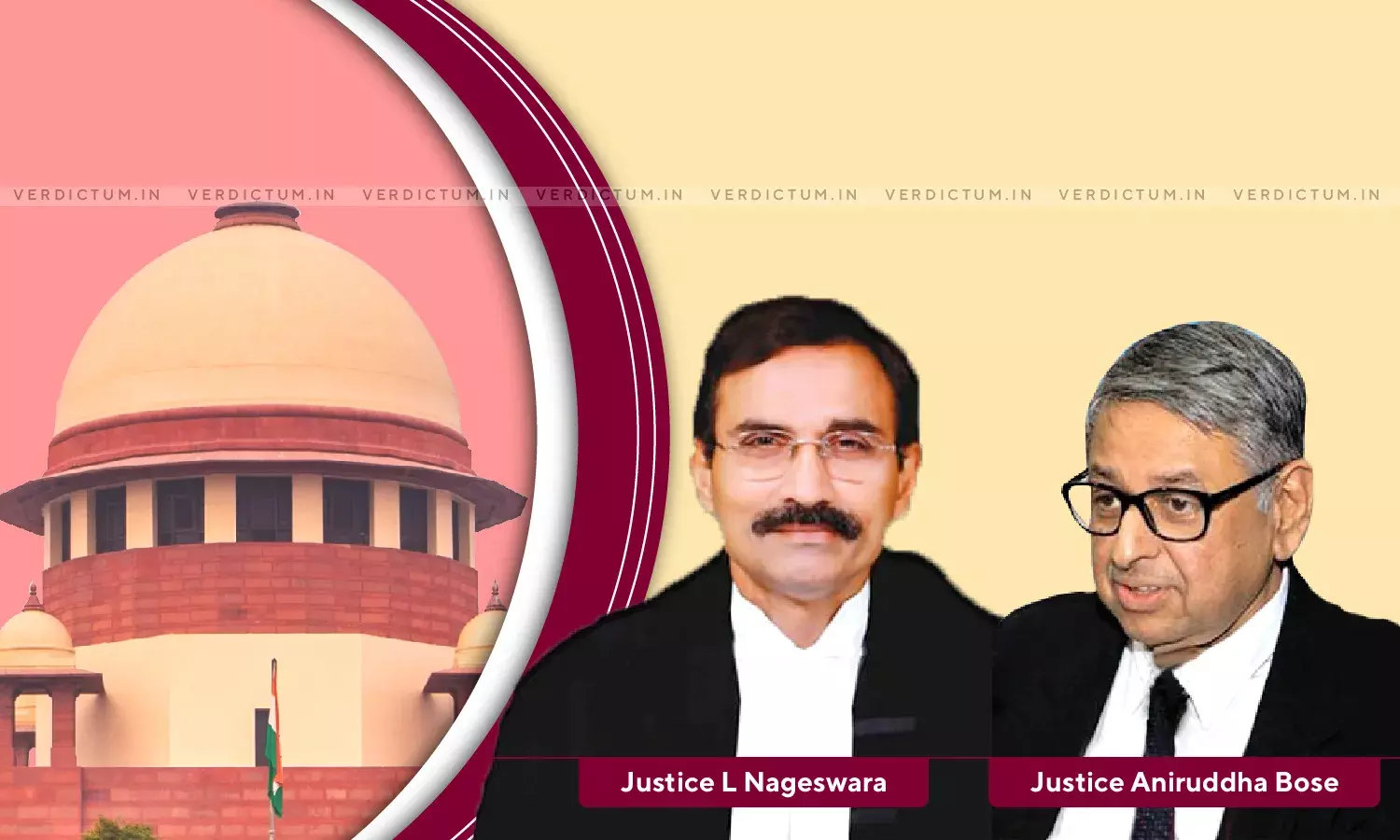Reopening Of Inquiry Into Caste Certificates Allowed Only In Cases Vitiated By Fraud Or Is Without Proper Inquiry: Supreme Court

A two-judge Bench of Justice L. Nageswara Rao and Justice Aniruddha Bose has held that as per the relevant Government guidelines issued by the State of Tamilnadu, the State Level Scrutiny Committees are not permitted to reopen caste certificate cases which have become final and already issued.
The Court further held that repeated inquiries into the issuance of caste certificates would be detrimental to the members of Scheduled Castes and Scheduled Tribes.
An appeal was preferred against the judgment of Madras High Court which had dismissed the Writ Petition of the Appellant and upheld the order passed by the Chennai District Vigilance Committee canceling the community certificate of the Appellant.
In this case, the Appellant was issued a community certificate by the Tehsildar, Mylapore-Triplicane, Chennai showing that she belonged to Valluvan community and was a Scheduled Caste. Later, when she joined services, the Appellant's community certificate was challenged by Dr. Ambedkar Service Association on the ground that her caste certificate was false and not genuine; however, such a claim was rejected by the District Vigilance Committee.
Subsequent to her promotion, her caste certificate was again challenged based upon the earlier premise. The State Level Committee remanded the enquiry against the Appellant to the District Vigilance Committee reconstituted by the Tamil Nadu Government which canceled the caste certificate of the Appellant.
The Appellant contended before the Court that the State Level Scrutiny Committee did not have the jurisdiction to remand the matter to District Vigilance Committee for a fresh enquiry into the genuineness of the caste certificate. It was further argued that since the certificate was also already granted to the Appellant and upheld once upon verification, it became final and could not be reopened.
The Apex Court considered earlier judgments in the matter of Kumari Madhuri Patil & Anr. v. Addl. Commissioner, Tribal Development & Ors and Dayaram v. Sudhir Batham & Ors., and observed that those caste certificates which were issued after due and proper inquiry need not be verified by the Scrutiny Committees.
Holding that the decision of the District Vigilance Committee grating community certificate to the Appellant at the first instance was not challenged before any forum, the Court opined, "The recognition of the community certificate issued in favour of the Appellant by the District Vigilance Committee having become final, the State Level Scrutiny Committee did not have jurisdiction to reopen the matter and remand for fresh consideration by the District Level Vigilance Committee."
"The guidelines issued by G.O.108 dated 12.09.2007 do not permit the State Level Scrutiny Committee to reopen cases which have become final. The purpose of verification of caste certificates by Scrutiny Committees is to avoid false and bogus claims," the Court held.
The Bench observed, "Reopening of inquiry into caste certificates can be only in case they are vitiated by fraud or when they were issued without proper inquiry."
The Court held that since the State Level Scrutiny Committee did not have the jurisdiction to reopen the matter related to the caste certificate approved by the District Vigilance Committee in 1999 without any appeal filed against the order, the Court did not find the necessity to deal with the correctness of the findings of the District Vigilance Committee which had canceled the caste certificate of the Appellant in 2008. Accordingly, the appeal was allowed.

